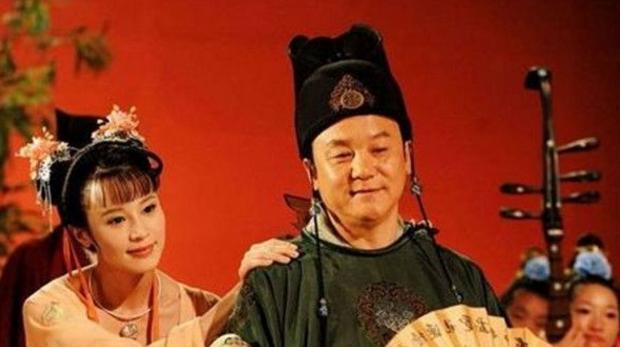At the end of October 76, Gao Lishi was forcibly escorted to Wuzhou. Before leaving, he pleaded bitterly, hoping to meet with Emperor Xuanzong, and the people sent by Li Fuguo categorically refused this pitiful request. Wuzhou can be described as the "Siberia" of the Tang Dynasty. At that time, most of the area was undeveloped, full of deadly zhangqi, and various diseases threatened the health of exiles in the field all the time.

In Wuzhou, Colliers' health has not been very good. Although he has always claimed to be "invincible to all diseases", after all, he is already a person in his seventies, not to mention that this long trip, far away from Emperor Xuanzong, whom he has rarely left for decades, is depressed and has no good mood at all. At that time, there were two main types of residents in Wuzhou, one was a native native, and the other was some exiled "outsiders".
Among the many "outsiders", only one person can talk to Colliers. This person's surname is Liu, the name is Fang, originally served as a minor official for several times, because he offended Li Fuguo, so he was also degraded here. Liu Fang herself has long heard of the great name of Gaolishi, Gaolishi lives alone and lonely, the two see each other, and talk about some anecdotes in the court during the Kaiyuan and Tianbao years day by day. These interesting facts were recorded one by one by Liu Fang, and later compiled into a booklet called "Ask Gaolishi", which was not circulated, but fortunately, li Deyu, the prime minister who later compiled a book "The Old News of the Second Liu Clan", which more or less preserved some of the history of that year for us.
The local indigenous people of Wuzhou, as well as local officials, did not respect Gao Lishi as Liu Fang, and people's feelings were cold and warm, and the world was cold, which was the case. Colliers was quite emotional. At that time, there was a dish called mustard greens in Chengzhou. This mustard is an annual or biennial herb with small yellow flowers and slender fruit. The seeds are yellow, spicy, ground into a powder, called mustard, and used as a condiment. There are many varieties of mustard greens, with different forms, according to the use of mustard greens can be divided into leaves with mustard greens such as snow harvesting; stems with mustard greens, such as squeezed vegetables; roots with mustard greens, such as kohlrabi, Wuzhou mustard is a kind of leaf mustard.
This mustard was delicious, but unfortunately the local indigenous people did not know the goods at all. From the mustard to think of himself, Colliers could not help but touch the object of injury, could not help but write a five-word mustard poem that has been passed down to this day:
The two capitals are sold as celery, and no one in Wuxi is picked.
Although Yixia is different, the smell will not change!
The poem is near and far away, comparing mustard to celery, borrowing mustard and stating that he will not change his loyalty to the emperor (of course, the emperor) depending on the place where he lives. Even if the magistrates could not understand (no one took it), they did not waver. Gao Litu is not a professional literati, and the works that have been handed down are just this one. Despite his shortcomings, his loyalty to Emperor Xuanzong was unshakable to the death. Nowadays, when I see this poem and think of Colliers' state of mind, it is still easy to be touched.
In April of the third year of Emperor Suzong's reign (762), Li Longji and Li Ting's father and son died one after another. After Li Yu, the eldest son of Emperor Suzong, who had just ascended the throne, became emperor, he announced a general amnesty for the world. Gao Lishi, who was already seventy-eight years old, was "en-allowed" to return to Chang'an, and when he returned to the north, passing through Langzhou City, Hunan Province, he met a group of guests who had just returned from the capital, only to learn that Emperor Xuanzong, whom he longed to see in the twilight, had passed away, and that Emperor Suzong, who had once honored him as the "second brother", had also been driven, and at this time, he suddenly felt that everything in this world was really like a cloud of smoke, emptiness is color, color is emptiness, and everything is just like that.
So "the north looked at the mourning, vomiting blood and pawning." Facing the far north, crying loudly, is he crying about his fate? Or is he crying for Emperor Xuanzong, who will never see him again? No one knows. The history books and the records of the people at that time simply tell people that Colliers died of vomiting blood. That's enough.
After the death of Gao Lishi, in order to buy people's hearts and show that his mind was far broader than that of his father, Emperor Suzong Li Heng, specially sent people to Langzhou to hang himself, and issued an edict, specially giving Gao Lishi the governor of Yangzhou, and allowing him to be buried with Tang Xuanzong's mausoleum, the side of the Tailing. Although Gao Lishi was not able to see Li Longji again before he died, he was able to lean on the side of Emperor Xuanzong after his death, which was probably also a kind of fate!